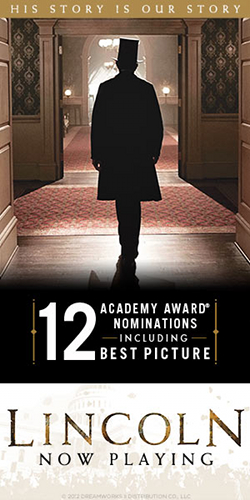Woody Allen Spotlight: Bananas (1971)
Cast: Woody Allen, Louise Lasser, Carlos Montalbán
Director: Woody Allen
Country: USA
Genre: Comedy
Official Trailer: Here
When Woody Allen released Bananas in 1971, it was greeted with a benevolent review by legendary film critic Vincent Canby of The New York Times, which concluded: “Any movie that attempts to mix together love, the Cuban revolution, the C.I.A., Jewish mothers, J. Edgar Hoover and a few other odds and ends (including a sequence in which someone orders 1,000 grilled cheese sandwiches) is bound to be a little weird – and most welcome.” After the critical appreciation of Allen’s first film, Take the Money and Run, MGM contacted him to make an adaptation of Richard Powell’s comic novel Don Quixote, U.S.A. Allen’s first idea was to turn it into a short story, which got turned down by both Robert Morse and The New Yorker. Consequently, Allen re-wrote the story into a film. If you’ve never seen the film, Bananas, Canby’s synopsis gives you a good idea of the texture of it: pure hilarity. Allen catapults himself out of Take the Money and Run and, gathering both momentum and confidence, pulls off scenes that were too absurdist to try in his first creative endeavor, including the above mentioned scene where Allen goes into town to order food for his whole troupe of rebels and begins with ordering 1,000 grilled cheese sandwiches. This scene is exemplary of Allen’s increasingly bold emulations of his comedic idols: The Marx Brothers; Charlie Chaplin; and Bob Hope. In this case, the sandwich passage is highly reminiscent of the famous Marx Brothers “stateroom scene” where Groucho orders an enormous amount of food (mostly eggs) to his tiny ship cabin in A Night at the Opera.
Bananas had the potential to be a controversial film, especially in our politically aware times. Allen was satirizing a serious issue: the instability and violence of some Latin American countries, and the U.S. involvement therein.
 From the moment the film commences with a scene of the assassination of a fake Latin dictator, hosted by Don Dunphy with Howard Cosell providing commentary, the viewer knows they’ve signed on to take a ride. The basic plot of the film is that Fielding Mellish (Allen) falls in love with a young political activist, Nancy (played by Louise Lasser, from whom Allen had recently divorced). When she breaks up with Fielding, he goes to the fictitious country of San Marcos to become politically involved and prove his bravery to Nancy. Via a wacky series of events, Fielding ends up being a trusted member of the opposing rebel forces. Once the rebels depose the second dictator, Fielding is persuaded to take the role of the new president. When he goes back to the U.S. to ask for financial support for San Marcos, he gets put on trial.
From the moment the film commences with a scene of the assassination of a fake Latin dictator, hosted by Don Dunphy with Howard Cosell providing commentary, the viewer knows they’ve signed on to take a ride. The basic plot of the film is that Fielding Mellish (Allen) falls in love with a young political activist, Nancy (played by Louise Lasser, from whom Allen had recently divorced). When she breaks up with Fielding, he goes to the fictitious country of San Marcos to become politically involved and prove his bravery to Nancy. Via a wacky series of events, Fielding ends up being a trusted member of the opposing rebel forces. Once the rebels depose the second dictator, Fielding is persuaded to take the role of the new president. When he goes back to the U.S. to ask for financial support for San Marcos, he gets put on trial.
Bananas had the potential to be a controversial film, especially in our politically aware times. Allen was satirizing a serious issue: the instability and violence of some Latin American countries, and the U.S. involvement therein. Some might find his light touch trivializing, and perhaps it was meant to be that way; another way to see the film is that no one is taken seriously, and no one ends up looking smart or less guilty than anyone else. The viewer can’t really take the Latin dictator seriously when after a dinner party he fumes about Fielding, saying, “I could kill him! He brings cake, and doesn’t even bring an assortment!” As the writer, Allen makes his views on the U.S. involvement apparent when, after assassination number two, a CIA agent explains the U.S. stance regarding the new faction: “The CIA’s not taking any chances this time. Some of us will be for them and some against them.” The driving theme of Bananas is the same as is proffered in his only two other politically focused films—Sleeper and Love and Death—which is that, in the end, revolutions and political squabbles are pointless because no matter how noble a person seems before ascending to power, once there they will fall prey to power, lust, and corruption. To illustrate his point, Allen includes a shot of the latest dictator explaining the new rules of San Marcos: “From this day on, the official language of San Marcos will be Swedish…(the crowd rumbles) Silence!…In addition to that, all citizens will be required to change their underwear every half-hour. Underwear will be worn on the outside so we can check. Furthermore, all children under 16 years old are now…16 years old!” It’s clear from the beginning that Allen is satirizing everyone, most of all his own character.
As director, writer (co-written with an old high school pal, Mickey Rose), and star of the film, Allen pursues his love of reference and homage unrestrained.
 Bananas represents an incremental progression of Allen’s burgeoning style. Even though Allen leans a little on outside narration as he did in Take the Money and Run to explain the story rather than show it, here he maximizes the inventiveness of the technique by bringing in Don Dunphy and Cosell as co-commentators. In the final scene, he maneuvers the conceit of the commentators into purely comedic territory where they’ve set up their cameras in the nuptial bed of Fielding and Nancy, a scene which one could say presages his next film, Everything You Ever Wanted to Know About Sex* (*But Were Afraid to Ask). In any case, with the help of Lasser’s reliable comedic timing, Allen’s able to write a few of the funniest scenes of the movie between he and his ex-wife. A prime example is Fielding and Nancy’s break up scene, where Fielding is trying to get the equivocating Nancy to explain why she wants to break up:
Bananas represents an incremental progression of Allen’s burgeoning style. Even though Allen leans a little on outside narration as he did in Take the Money and Run to explain the story rather than show it, here he maximizes the inventiveness of the technique by bringing in Don Dunphy and Cosell as co-commentators. In the final scene, he maneuvers the conceit of the commentators into purely comedic territory where they’ve set up their cameras in the nuptial bed of Fielding and Nancy, a scene which one could say presages his next film, Everything You Ever Wanted to Know About Sex* (*But Were Afraid to Ask). In any case, with the help of Lasser’s reliable comedic timing, Allen’s able to write a few of the funniest scenes of the movie between he and his ex-wife. A prime example is Fielding and Nancy’s break up scene, where Fielding is trying to get the equivocating Nancy to explain why she wants to break up:
Nancy: Something’s missing.
Fielding: I mean, I love you and you love me.
Nancy: No, I mean it’s not because I don’t love you.
Fielding: Then, you love me?
Nancy: No, I don’t.
[...]
Nancy: You’re immature, Fielding.
Fielding: How am I immature?
Nancy: Emotionally, sexually, and intellectually.
Fielding: Yeah, but what other ways?
And the scene keeps going, turning into one of the cleverest writing and acting sequences of Allen’s first two movies.
As director, writer (co-written with an old high school pal, Mickey Rose), and star of the film, Allen pursues his love of reference and homage unrestrained. In a demonstration of his high esteem for the silent era, he orchestrates a subway scene in which a gang of ruffians terrorizes the occupants of a subway car. One of the scoundrels is a pre-Rocky Sylvester Stallone, and the whole passage is one of physical comedy acted to a silent film-style piano riff. In another tribute to “Marxian” humor, near the end of the film, Allen executes a courtroom scene where he includes every slapstick gag imaginable, including a bit where he cross-examines himself. At some point in the melee, Fielding announces to the judge, “I object, your honor! This trial is a travesty. It’s a travesty of a mockery of a sham of a mockery of a travesty of two mockeries of a sham.” Nothing’s missing but the cigar.
In this, his second movie where he has full creative control, we see Woody Allen reach a mastery of emulation of the comedy classics, but he has yet to take that and make it completely his own.
 The writing in Bananas is not as intellectually ambitious as in Love and Death, which will follow in 1975; nor is it as emotionally mature as Annie Hall, in 1977. On the other hand, Bananas is both more risky and more efficacious at its risks than Take the Money and Run was. And, as Allen said of Bananas, “{It} was still a film where I only cared about being funny. I wanted to make sure that everything was funny and fast-paced.” In this, his second movie where he has full creative control, we see Woody Allen reach a mastery of emulation of the comedy classics, but he has yet to take that and make it completely his own. It’s similar to how painters used to go to school and copy the paintings of the great masters over and again until finally their own conceptions shone through. In Bananas, Allen proves his competency at adapting someone else’s book to screen, at recreating Marx Bros.-like slapstick humor, and at paying homage to Bob Hope’s early characters, who are humorously cowardly in the face of duty … but the depth of the psyche and intellect of the filmmaker, Woody Allen, has yet to be wrought.
The writing in Bananas is not as intellectually ambitious as in Love and Death, which will follow in 1975; nor is it as emotionally mature as Annie Hall, in 1977. On the other hand, Bananas is both more risky and more efficacious at its risks than Take the Money and Run was. And, as Allen said of Bananas, “{It} was still a film where I only cared about being funny. I wanted to make sure that everything was funny and fast-paced.” In this, his second movie where he has full creative control, we see Woody Allen reach a mastery of emulation of the comedy classics, but he has yet to take that and make it completely his own. It’s similar to how painters used to go to school and copy the paintings of the great masters over and again until finally their own conceptions shone through. In Bananas, Allen proves his competency at adapting someone else’s book to screen, at recreating Marx Bros.-like slapstick humor, and at paying homage to Bob Hope’s early characters, who are humorously cowardly in the face of duty … but the depth of the psyche and intellect of the filmmaker, Woody Allen, has yet to be wrought.














 Review: Beautiful Creatures (2013)
Review: Beautiful Creatures (2013) Review: No (2012)
Review: No (2012) Review: A Good Day to Die Hard (2013)
Review: A Good Day to Die Hard (2013) Review: Side Effects (2013)
Review: Side Effects (2013) Blu Review: Side by Side (2012)
Blu Review: Side by Side (2012)





